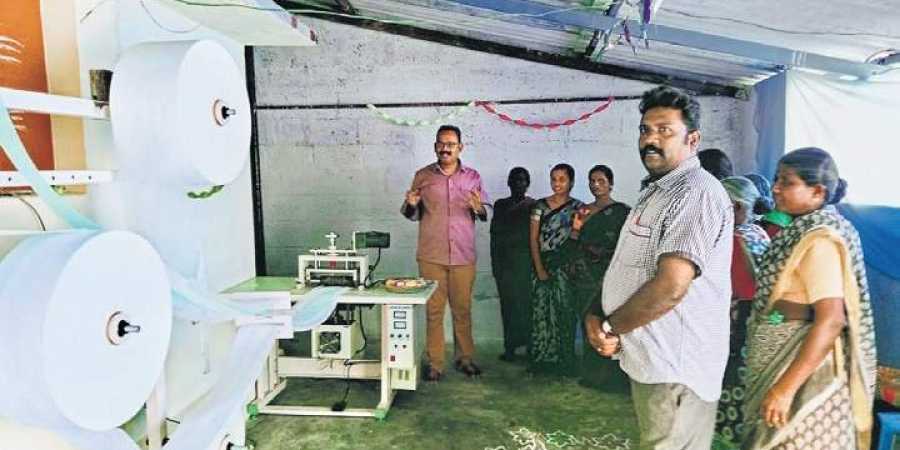Padman may have become a household name owing to his single-minded crusade to make sanitary napkins accessible to women across all range of the socio-economic spectrum.

Erode :
Padman may have become a household name owing to his single-minded crusade to make sanitary napkins accessible to women across all range of the socio-economic spectrum. However, in his own state are many villages, where neither padman nor a sanitary napkin is known. This is an anomaly Rights Education and Development Center (READ) NGO has undertaken to set right.
In collaboration with women self-help groups (SHGs), READ set up 10 pad-making units at 10 villages at Sathyamangalam and Gobichettipalayam, TN Palayam blocks of Erode. Now, these women have access to pads at Rs 3 per piece and Rs 30 per packet of 10 pads. The added benefit is jobs for 100 women.
READ NGO Director Karuppusamy told Express, “Even today many women use cloths in tribal hamlets and villages in Erode. When we enquired about the reason, they pointed out two factors — affordability and lack of awareness on the importance of using sanitary pads. So we decided to pool funds and develop a social enterprise model to manufacture sanitary napkins at a subsidised cost.” A few of them were inaugurated earlier this week, he added.
The NGO identified major places that require immediate intervention and did a pilot study to set up a pad manufacturing unit. To make it more effective, the NGO collaborated with the local women self-help groups (SHGs) and directed them to take over the social enterprise. There are ten members in each SHGs and the work is equally divided among them — one group takes care of production and another does marketing. The units are registered under the Ministry of Micro, Small & Medium Enterprises under the brand name ‘Feel Free’.
One member of an SHG at Polavakaliyampalam in Gobichettipayalam, Nirmala, said, “Our motive is to make women in our region aware of sanitary pads. We go to every house, schools and colleges and talk about its significance. We do not just sell the pads but also teach them everything from using them, the time period for which one pad can be used to the disposing methods.”
On an average one unit produces up to 200 pads a day. The units are set up on a 10*12 sq ft area and it cost Rs 4,20,000 to set up one unit. The machines were sourced from Uttarkhand.
“Since it is an automatic machine, work is easy and quick. We need to place the cotton tissue sheets in the machine, which converts them into a series of pads. The organic winged napkins are made of cloth, wood-pulp cotton. All the pads are sterilized using ultraviolet radiation before packaging,” she added.